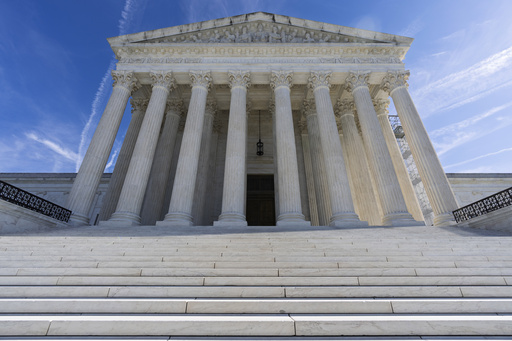WASHINGTON — The Supreme Court announced on Friday that it will hear a case concerning religious rights related to whether a Catholic charity in Wisconsin is required to pay the state’s employment tax.
The court will review a ruling from the Wisconsin Supreme Court which denied an exemption for the Catholic Charities Bureau located in Superior, Wisconsin. The state court concluded that the primary activities of Catholic Charities and its affiliated organizations are not distinctly religious, although it acknowledged that their efforts to aid the elderly, disabled, and low-income individuals are motivated by Catholic doctrine.
The arguments for the case are expected to take place in the spring. In recent years, the Supreme Court has consistently ruled in favor of religious groups in disputes with state governments.
Legal representatives for the Wisconsin charity have contended that the ruling infringes upon the religious freedoms guaranteed by the First Amendment. They further argued that the Supreme Court should intervene due to conflicting decisions from several prominent state courts regarding similar matters.
Eric Rassbach, the lead attorney for Catholic Charities at the Supreme Court, criticized the state for potentially penalizing organizations for their good works, stating, “It is absurd and unjust to penalize Catholic Charities for assisting both Catholics and non-Catholics.”
On the other hand, Wisconsin Attorney General Joshua Kaul has urged the Supreme Court not to engage in the matter, asserting that a significant portion of the funding for these charities comes from state and local government sources as well as the federal-state Medicaid program. He emphasized that the employees and service recipients of these organizations are not required to adhere to the Catholic faith, noting, “Individuals receiving services from these groups undergo no religious orientation or training.” He pointed out that Catholic Charities has been remitting the unemployment tax since 1972.
Wisconsin law permits exemptions for church-affiliated organizations from the employment tax if they are predominantly “operated primarily for religious purposes.” However, the state Supreme Court maintained that both the intent and the functions of the organizations must have a religious basis to qualify for such exemptions.
Additionally, a collective of religious scholars supporting Catholic Charities indicated to the court that the situation reflects inappropriate government interference in religious freedoms, calling for Supreme Court involvement.
A variety of religious groups, including Catholic, Islamic, Lutheran, Jewish, and Mormon organizations, have also filed briefs asserting their support for Catholic Charities.
Conversely, the Freedom from Religion Foundation presented arguments at the state Supreme Court suggesting that a ruling favoring Catholic Charities could have broad implications, potentially affecting religiously linked hospitals and some colleges in Wisconsin, thus removing their employees from the state’s unemployment insurance framework.
Catholic Charities in Superior oversees nonprofit entities that operate over 60 programs aimed at assisting older or disabled individuals, children with special needs, low-income families, and those affected by disasters, independent of their religious affiliations, according to court documentation.


